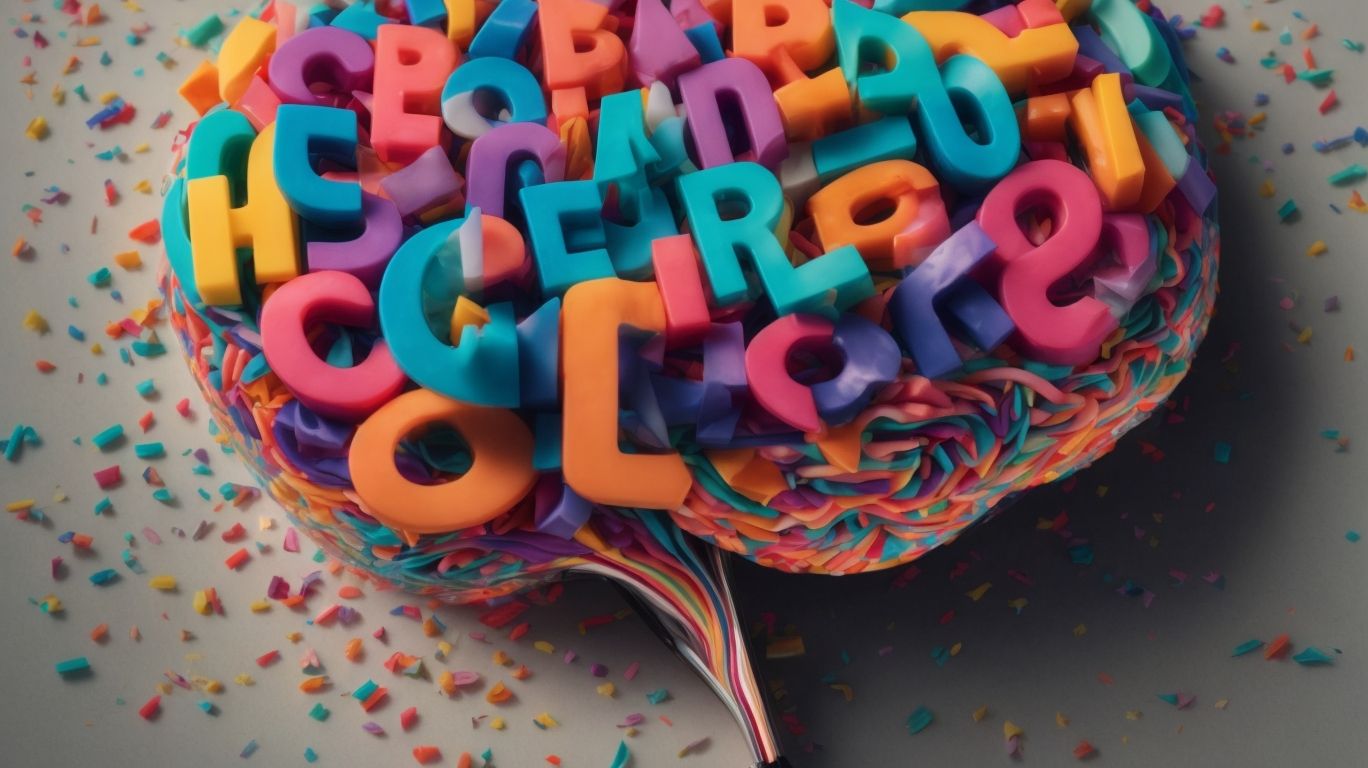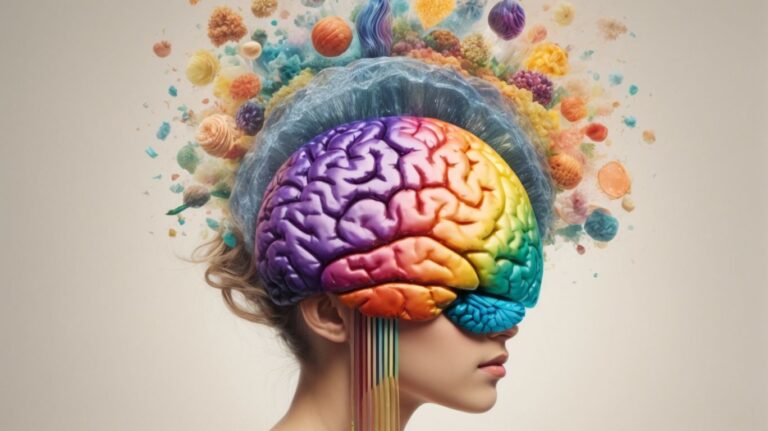Have you ever wondered what the mysterious ‘Id’ in psychology actually is? This article aims to demystify this concept for you. From its characteristics to its role in personality development, we will explore everything you need to know about the Id.
We will also delve into how the Id develops, its functions, and the potential effects of an overactive Id. Stay tuned to discover how you can effectively manage your Id for a healthier mindset.
Contents
What Is the Id in Psychology?
In psychology, the concept of the Id, proposed by Sigmund Freud, represents the primitive and instinctual part of the human psyche.
Freud believed that the Id operates on the pleasure principle, demanding immediate gratification of basic needs such as hunger, thirst, and sex without considering societal norms or consequences. It is impulsive, irrational, and unaware of reality, acting on raw urges.
This primal force seeks pleasure and avoids pain, guiding behaviors through unconscious desires. The Id is fundamental in shaping an individual’s personality, influencing decision-making, emotions, and dreams. Its interactions with the Ego and Superego form the basis of Freud’s psychodynamic theory.
What Are the Characteristics of the Id?
The Id, as per Freud’s psychoanalytic theory, operates on the pleasure principle and embodies irrationality and impulsivity in human behavior.
It is the most primitive part of the mind, driven purely by instincts and seeking immediate gratification without concern for consequences. The Id houses our innate urges, such as hunger, thirst, and sexual desires, and operates unconsciously, influencing our thoughts and actions. This primal force is crucial in driving our basic impulses and shaping much of our behavior. Freud viewed the Id as the reservoir of our repressed desires and emotions, often clashing with the constraints imposed by the Ego and Superego.
Unconscious Mind
The Id primarily resides in the unconscious mind, influencing various mental functions according to the psychodynamic approach.
Within the realms of psychoanalytic theory, Sigmund Freud introduced the concept of the Id as a primal and instinctual part of the psyche. It operates based on the pleasure principle, seeking immediate gratification without concern for consequences. This innate drive is often characterized by impulses, desires, and unchecked urges. As a crucial component of Freud’s structural model of the mind, the Id plays a significant role in shaping thoughts, feelings, and behaviors.
Operates on the Pleasure Principle
The Id functions based on the pleasure principle, engaging in primary process thinking to satisfy immediate pleasure-seeking urges.
Primary process thinking involves impulsive actions driven by the pursuit of pleasure, without considering consequences or reality constraints. It operates on unconscious desires and instincts, seeking instant gratification without delay. The Id is often associated with primal urges and raw emotions, bypassing rationality and logic. This part of the psyche is essential for survival and drives basic needs such as hunger, thirst, and intimacy. Through the Id, individuals seek pleasure and avoid pain, following instincts and impulses to fulfill their immediate needs. This primal force can sometimes clash with the restrictions imposed by the ego and superego.
Irrational and Impulsive
The Id exhibits irrational and impulsive behaviors rooted in fulfilling basic instincts and desires without concern for consequences.
It is driven by the pleasure principle, seeking instant gratification regardless of societal norms, morality, or logic.
This primitive part of the psyche operates on impulses and seeks immediate satisfaction without considering long-term implications. For a better understanding of ‘Id’ in psychology, you can visit this link.
Source of Basic Drives and Instincts
The Id serves as the source of primal drives and instincts that underlie various psychological functions and behaviors.
It is the primitive part of the psyche that operates on the pleasure principle, seeking immediate gratification of desires without considering consequences.
This aspect of the mind is impulsive and irrational, functioning unconsciously and driving behavior based on innate needs for survival, pleasure, and avoidance of pain.
Freudian theory posits that the Id is present from birth and is the foundation on which the ego and superego develop over time to regulate and control its impulses.
How Does the Id Develop?
According to Freud, the Id plays a crucial role in early personality development, laying the foundation for later psychological functions.
Freud believed that the Id, which operates on the pleasure principle, is present from birth and acts as the driving force behind our basic primal impulses and desires.
This aspect of our psyche is impulsive, irrational, and seeks immediate gratification without consideration for social norms or consequences.
Freud argued that as individuals mature, they develop the ego and superego to balance and control the impulses of the Id, leading to the formation of a more cohesive and regulated personality.
What Role Does the Id Play in Personality Development?
The Id’s interactions with the Ego and Superego during childhood upbringing significantly shape personality development and behavioral patterns.
Childhood experiences play a pivotal role in forming the Ego and Superego’s response to the desires of the Id. Early interactions with caregivers and the environment can influence how these aspects of the mind develop and interact with each other. For example, a child who consistently receives praise and positive reinforcement may develop a strong Ego that balances their desires with societal expectations effectively.
Conversely, traumatic experiences or inconsistent parenting can lead to a weakened Ego that struggles to mediate between the impulsive Id and the moralistic Superego. This can result in issues such as impulsivity, emotional regulation difficulties, or internal conflicts.
What Are the Functions of the Id?
The Id serves multiple functions, providing energy for mental processes, aiding in stress coping, and fostering creative and spontaneous behaviors.
One of the key roles of the Id is to generate mental energy that fuels cognitive activities such as decision-making, problem-solving, and memory consolidation.
The Id plays a pivotal role in managing stress by channeling instinctual drives and emotions in adaptive ways, helping individuals navigate challenging situations with resilience.
The Id is instrumental in promoting creative behaviors by facilitating the exploration of novel ideas, unconventional approaches, and out-of-the-box solutions.
Provides Energy for Mental Processes
One key function of the Id is to supply energy for mental processes, supporting various psychological functions and cognitive activities.
The Id, as described by Freud, serves as the reservoir of unconscious psychic energy. This energy fuels our desires, instincts, and primitive impulses, influencing our thoughts and behaviors. By stimulating and driving mental processes, the Id plays a crucial role in shaping our personalities and responses to external stimuli.
Helps to Cope with Stress and Anxiety
The Id assists individuals in coping with stress and anxiety by providing impulsive coping mechanisms and influencing ego strength.
The Id, as described by Freudian psychology, represents the unconscious part of the mind that operates based on pleasure principles, seeking instant gratification and relief from discomfort.
When faced with challenging situations triggering stress and anxiety, the Id may prompt individuals to react impulsively, without considering long-term consequences or societal norms.
This impulsive response mechanism can offer immediate stress relief but may not always lead to effective long-term stress management strategies.
Over time, reliance on impulsive coping strategies from the Id may weaken the individual’s ego strength, affecting their ability to deal with complex emotions and stressors in a balanced manner.
Allows for Creative and Spontaneous Behavior
The Id facilitates creative and spontaneous behaviors in individuals, sometimes leading to psychological disturbances if not balanced.
By allowing impulses and desires to surface without filtering through societal norms and rationality, the Id serves as the primal part of the psyche seeking instant gratification.
When the Id dominates the rational Ego and superego, individuals may experience a lack of impulse control, leading to impulsive actions and erratic behavior that can be harmful to themselves and others.
Unbridled Id impulses can manifest in various psychological disturbances such as addiction, aggression, and compulsive behaviors, often requiring professional intervention and therapy for resolution.
What Are the Effects of an Overactive Id?
An overactive Id can result in impulsive and risky behaviors, difficulties in delaying gratification, and challenges in adhering to social norms and rules.
When an individual’s Id is overly dominant, they may find themselves engaging in risky activities without considering the consequences. This impulsivity can lead to poor decision-making and potential harm to themselves or others. The struggle to delay gratification can result in immediate satisfaction taking precedence over long-term goals and well-being.
Adherence to social norms and rules becomes problematic for those with an overactive Id. They may disregard societal expectations, leading to conflicts and misunderstandings in interpersonal relationships. The struggle with self-control can also impact their ability to regulate emotions and behavior appropriately in various social settings.
Impulsive and Risky Behavior
Excessive Id dominance can lead to impulsive and risky behaviors that may result in psychological distress and negative outcomes.
Individuals with an overactive Id might find themselves engaging in activities without fully considering the consequences, driven purely by immediate gratification.
These impulsive decisions can strain relationships, harm one’s reputation, and lead to legal troubles or financial distress.
The constant pursuit of instant pleasure without regard for long-term implications can contribute to a cycle of emotional instability and regret.
Difficulty Delaying Gratification
Individuals with an overactive Id may struggle with delaying gratification, showcasing challenges in exercising self-control and managing impulses.
This innate struggle often stems from the clash between the immediate desires of the Id and the rational decision-making process of the ego. When one’s Id dominates, it can trigger impulsive actions and a lack of restraint, leading to decisions that prioritize instant satisfaction over long-term benefits. This impulsive behavior can hinder personal growth and achievement, as success often requires sacrificing immediate rewards for greater future gains. Individuals lacking strong ego strength may find it particularly challenging to resist temptations and make prudent choices in the face of instant gratification.
Struggle with Social Norms and Rules
An overactive Id can lead individuals to struggle with adhering to social norms and rules dictated by societal values, resulting in conflicts and challenges.
When the Id dominates one’s psyche, the innate desires and impulses take precedence over considerations of social propriety. This can manifest in impulsive behaviors that defy societal expectations and norms, causing friction and discord in various social contexts.
Individuals with an overactive Id may find it difficult to restrain their immediate urges, seeking instant gratification without regard for the consequences or impact on those around them. Such resistance to conforming can lead to misunderstandings, conflicts in relationships, and even legal troubles if not managed effectively.
How Can Someone Manage Their Id?
Managing the Id involves cultivating self-awareness, practicing self-control, and seeking therapy if necessary to address underlying psychological conflicts.
Self-awareness is a crucial component in managing the Id, as it allows individuals to recognize their impulses and desires, thus enabling them to make more conscious decisions. By understanding the root causes of these urges, one can develop effective coping mechanisms and strategies that promote healthier behaviors.
Practicing self-control is essential in regulating impulsive actions that may stem from the Id. Techniques such as deep breathing, mindfulness, and cognitive restructuring can help individuals pause before acting on their raw desires.
If unresolved emotional issues are causing significant distress or impairing daily functioning, it may be beneficial to seek professional therapy. Therapists can provide a safe space to explore these underlying conflicts, offering support, guidance, and tools to work through the issues at hand.
Awareness and Understanding
Enhancing self-awareness and understanding of one’s unresolved emotions is key to managing the Id and mitigating psychological distress.
Self-awareness involves recognizing one’s thoughts, emotions, and behaviors without judgment, allowing individuals to have a deeper understanding of themselves and their triggers.
By acknowledging and working through unresolved emotions, individuals can address the root causes of their psychological distress. This process often involves exploring past experiences, traumas, and patterns of behavior that may be contributing to the distress.
Cultivating emotional intelligence enables individuals to navigate their emotions effectively and respond to them in a healthy manner, reducing the influence of the Id’s impulsive and instinctual drives.
Practice Self-Control and Delayed Gratification
Developing self-control and the ability to delay gratification fosters adaptive behaviors and supports positive developmental changes in managing the Id.
These skills play a crucial role in guiding individuals to make rational decisions, resist impulsive urges, and prioritize long-term goals over immediate desires. By harnessing self-control, one can navigate through challenging situations with resilience, perseverance, and a focus on achieving desired outcomes. The practice of delayed gratification cultivates patience, discipline, and emotional regulation, leading to greater self-awareness and a sense of give the power toment in managing one’s impulses and behaviors.
Seek Professional Help if Necessary
In cases of persistent psychological distress or maladaptive behaviors stemming from the Id, seeking professional help through therapy is crucial for effective intervention and resolution.
Professional therapists have the expertise and tools to provide a safe and supportive environment for individuals to explore and address deep-seated issues that may be causing their distress.
Through guided sessions, individuals can gain insight into their thought patterns, emotions, and behaviors, allowing them to develop healthier coping mechanisms and make positive changes in their lives.
Therapists can also help individuals build resilience and enhance their self-awareness, give the power toing them to navigate challenges more effectively and improve their overall well-being.
Frequently Asked Questions
What is the ‘Id’ in Psychology?
The ‘Id’ in Psychology refers to one of the three components of the human psyche, as described by Sigmund Freud. It is the most primitive and instinctual part of our personality, driven by the pleasure principle and seeking immediate gratification of basic needs and desires.
How does the ‘Id’ influence our behavior?
The ‘Id’ is the source of our unconscious impulses and drives, which can often conflict with societal expectations and norms. It operates on a pleasure-seeking basis, without regard for consequences or morality, and can lead to impulsive and irrational behavior.
Can the ‘Id’ be controlled or suppressed?
While the ‘Id’ is a natural and important part of our psyche, it can be beneficial to regulate or redirect its impulses through other components of our personality, such as the ego and superego. This can be achieved through techniques like therapy and self-awareness.
How does the ‘Id’ develop?
The ‘Id’ is believed to develop in infancy, as the child begins to experience physical sensations and seek pleasure. It is also influenced by external factors, such as parental guidance and societal norms, as the child grows and learns to navigate the world.
What are some common traits associated with a dominant ‘Id’?
Individuals with a dominant ‘Id’ may be impulsive, thrill-seeking, and have a strong desire for instant gratification. They may struggle with self-control and have difficulty considering the consequences of their actions.
Can the ‘Id’ be changed or altered?
The ‘Id’ is a fundamental part of our psyche and cannot be changed or altered entirely. However, individuals can work on understanding and managing their ‘Id’ impulses, leading to more balanced and healthier behaviors.





